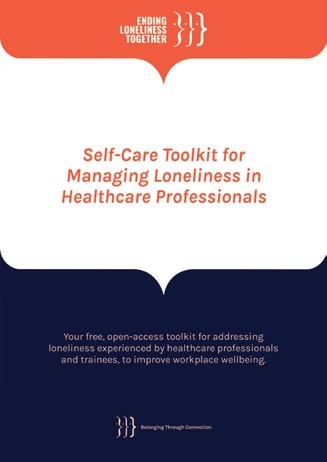LONELINESS
ENDING LONELINESS TOGETHER
Michelle Lim is the CEO of Ending Loneliness Together, and here CA talks to her about her work and her fight to make Australia less lonely.
Tell us about your work and vision.
I’m the CEO of Ending Loneliness Together, a national organisation focused on combating chronic loneliness in Australia.
At least one in three Australians feels lonely at any given point. My vision is that we build a society that is socially connected and supportive of each other so that we can thrive and flourish.
How did you become passionate about this role?
I’ve been a clinical psychologist who has been in practice for over 19 years. Much of my work focuses on people who report feeling lonely despite being surrounded by others.
Often loneliness can happen even if you do not have mental ill health. My passion is driven very much by the people who
I’ve seen over the years and my motivation to make things better for our community.
What does the research say about loneliness and its impact?
We know from the State of the Nation 2023 report on social connection in Australia that at least one in three Australians reports loneliness, and one in six Australians reports severe loneliness.
Loneliness increases our likelihood of reporting a chronic disease by two times, depression by 4.6 times, and social anxiety by 4.1 times. We are also less engaged in physical activity, more likely to have a social media addiction and less productive at work when we are lonely.
What advice would you give to someone who has concerns about loneliness or is lonely? What do you hope readers will take away and apply in mental health?
The first thing to remember is that you are not alone in feeling lonely. While it is normal to feel lonely, it is the stigma of loneliness that prevents us from getting the help we need early.
People feel ashamed and embarrassed when they feel lonely. It’s important that we educate ourselves on what loneliness is and what it is not. There are helpful resources that we have gathered to increase awareness of loneliness and how to help others and yourself: lonelinessawarenessweek.com.au endingloneliness.com.au.

Where can we go to learn more and find tools and information to better support mental health workers?
Health professionals are at risk of loneliness but, fortunately, there is help out there that can help all health professionals, including mental health workers.
Ending Loneliness Together has a free downloadable, evidencebased resource for health professionals, which can be found at endingloneliness.com.au/selfcare-toolkit.
What do you believe we need to do more to help reduce the impact and prevalence of loneliness? (For example, at individual and societal levels.)
As an individual and a mental health professional, I can provide some relief to many of the people I see, but in reality, we need a whole-of-systems approach to mitigate the ongoing effects of loneliness.
This means changing our environment to facilitate good, meaningful relationships – from teaching our children how to navigate social relationships to promoting social connection at workplaces.
There is no single panacea for loneliness and, because loneliness can present in different forms across different sectors and parts of our lives, I advocate for a whole-of-systems approach to preventing and addressing chronic loneliness.
The first thing to remember is that you are not alone in feeling lonely. W hile it is normal to feel lonely, it is the stigma of loneliness that prevents us from getting the help we need early.
Ten tips for managing loneliness in the workplace
1. Acknowledge your own loneliness – even if it’s just to yourself. It’s the first step to making things change.
2. Open the door to discussions and help to reduce the stigma of loneliness.
3. Give your colleagues the gift of your full attention: put your phone away at meetings and create a culture of active listening that enhances social connection.
4. Arrange to meet co-workers for lunch – increasing opportunities to get to know your colleagues better creates a deeper level of social connection.
5. Find or develop a peer support group to share your common interests, experiences and workplace challenges.
6. Celebrate team successes to help co-workers feel they have a common purpose and direction. A ‘thankyou’ goes a long way to help others feel valued and respected.
7. Form and maintain your professional networks to foster a sense of community and your professional identity.
8. Join a professional organisation to increase opportunities for meeting new people.
9. Remember your other self-care activities (for example, taking rest breaks, reducing stress) may also help in managing loneliness and developing meaningful connections at work.
10. Create your own self-care plan for boosting social connection and handling loneliness and encourage your students to develop their own.